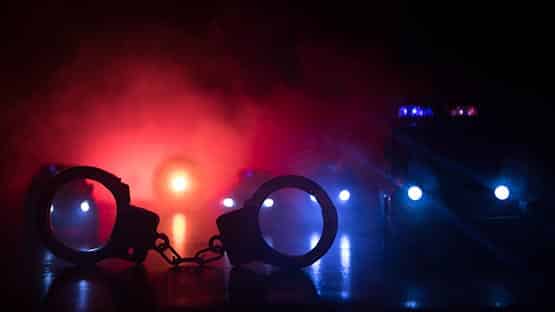
The Senate Intelligence Committee is recommending the executive branch to be preparing itself for foreign interference in the 2020 elections.
This as President Trump continues to insist that intelligence assessments pinning interference in 2016 as being directed from Russia is Deep State fakery.
But, hey, at least we have it on paper now.
The Intelligence Committee released the third volume in its bipartisan investigation into Russian election interference on Thursday.
The report, “U.S. Government Response to Russian Activities,” examines the Obama administration’s reaction to initial reports of election interference and the steps officials took or did not take to deter Russia’s activities.
The installment released Thursday is the third of five in the Intelligence Committee investigation.
The first volume, “Russian Efforts Against Election Infrastructure” was released in July 2019. The second, “Russia’s Use of Social Media,” was released in September 2019.
The two remaining installments will examine the 2017 Intelligence Community Assessment on Russian interference and the Committee’s final counterintelligence findings.
Back to what we learned today: turns out, the Obama administration response was far too tepid to have had any chance of having an impact.
“After discovering the existence, if not the full scope, of Russia’s election interference efforts in late-2016, the Obama Administration struggled to determine the appropriate response. Frozen by ‘paralysis of analysis,’ hamstrung by constraints both real and perceived, Obama officials debated courses of action without truly taking one,” Intelligence Committee chair Richard Burr, R-N.C., said Thursday.
The Committee found that the administration was constrained in its response by the highly politicized environment, concern that public warnings would themselves undermine confidence in the election, and a delay in definitive attribution to Russia, among other issues.
“There were many flaws with the U.S. response to the 2016 attack, but it’s worth noting that many of those were due to problems with our own system – problems that can and should be corrected,” said Sen. Mark Warner, D-Va., the vice chair of the Intelligence Committee. “I am particularly concerned however, that a legitimate fear raised by the Obama Administration – that warning the public of the Russian attack could backfire politically – is still present in our hyper-partisan environment. All Americans, particularly those of us in government and public office, must work together to push back on foreign interference in our elections without regard for partisan advantage.”
Which is not happening, with the backdrop of the release of the third installment of the Intelligence Committee’s findings being the vote hours ago to acquit Trump on impeachment articles stemming from his scheme to hold up military aid to Ukraine to exert pressure on the country’s leadership to announce an investigation into former Vice President Joe Biden, a political rival.
Trump has repeatedly tried to pin election interference in 2016 on actors in Ukraine, in the face of what his own intelligence analysts have continually insisted in regard to the overwhelming evidence that it was Russia that acted to influence the final outcome.
So, again, hey, we have paper.
The report issued Thursday suggests that the U.S. take on a leadership role in creating international cyber norms, basically, rules against cheating, which, again, we have paper.
The committee is also recommending that information on election threats should be shared as broadly as appropriate within the federal government, including Congress, while still protecting intelligence sources and methods, and that in the event that an active measures campaign is detected, the public should be informed as soon as possible with a clear and succinct statement of the threat.
The Senate acquittal of Trump, who began his victory tour Thursday morning at the National Prayer Breakfast, tells us none of this is happening.
Let’s conclude with stupid quotes from smart guys.
“Thankfully, as we approach the 2020 presidential election we are in a better position to identify foreign interference efforts and address vulnerabilities Russia and other hostile foreign actors may seek to exploit,” Burr said. “We must continue building on the lessons of 2016, including making sure we have strong response options at the ready. I hope this Committee’s bipartisan report will help further the public’s understanding of the threats we face and the current administration’s ability to respond to them.”
“The 2016 Russian interference in our elections on behalf of Donald Trump was unprecedented in the history of our nation,” Warner said. “This volume tries to describe how the Obama Administration grappled with this challenge as they began to learn the scope of the Russian assault on our democracy. I hope that the lessons we captured in this report will resonate with lawmakers, national security experts and the American public so that we might be better able to fight off future attacks.”
Story by Chris Graham










